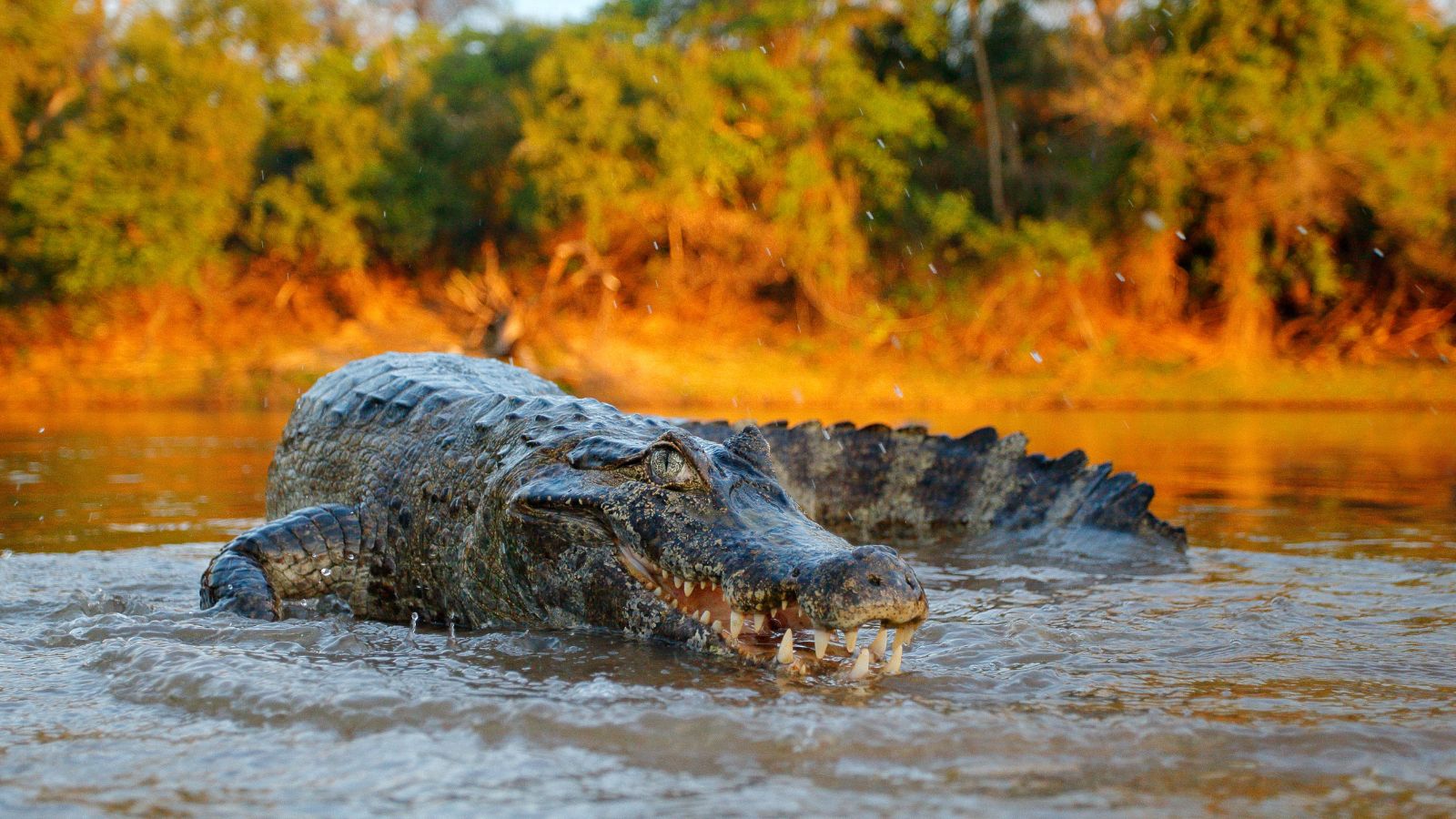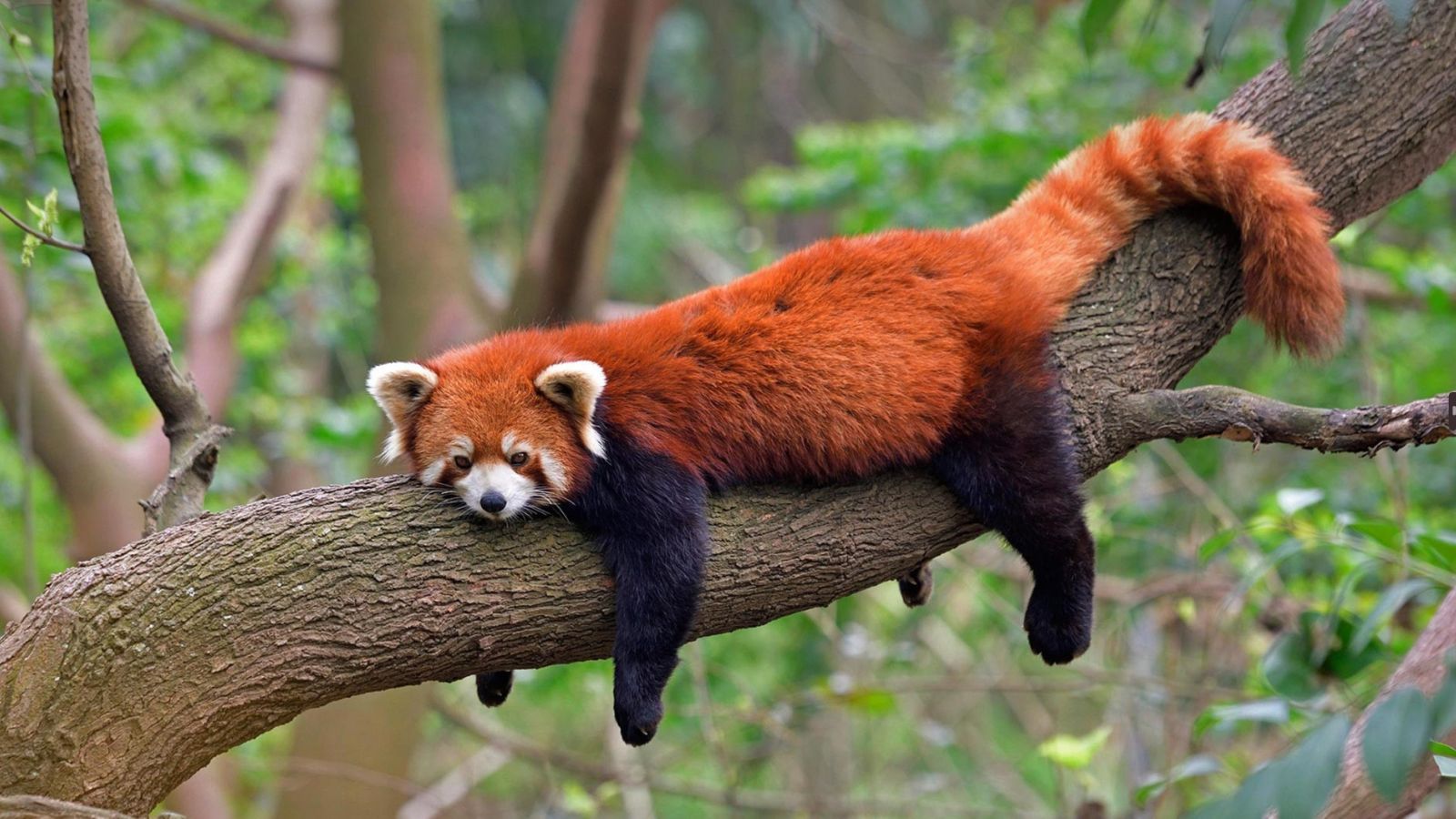For most of us animal lovers, there’s a part of us that would love to have as many species as possible in our lives. But sadly, there are many animals that simply aren’t safe or ethical to keep. We’ve compiled a comprehensive list of 17 animals you can’t keep as pets in the U.S.
Big Cats

It will come as no surprise that big cats such as lions, leopards, tigers, and other large felines are banned as pets in America. As you can imagine, keeping a large predator would come with many health and safety risks, and these animals are extremely difficult to care for properly.
Primates

According to Wise Voter, monkeys can be legally kept as pets in some states. However, that doesn’t mean they should be. Primates are highly intelligent creatures who have a wide range of physical, social, and emotional needs. As such, primate ownership is largely discouraged among experts.
Bears

It is illegal to own all species of bears in America. Bears are powerful animals that can pose a deadly threat to humans, and their size and strength make them very difficult to care for ethically. For the safety of yourself and those around you, let’s leave the bears in their forests.
Wolves and Wolf Hybrids

Many people love wolves and their resemblance to our canine friends. But unlike domestic dogs, wolves can be incredibly unpredictable and dangerous. They also have many additional needs that are difficult to cater to. For these reasons, there are many laws prohibiting the ownership of wolves and wolf hybrids.
Venomous Reptiles

Many species of reptiles can be kept as pets with no issues. But when it comes to venomous reptiles, this can be a different story. The ownership of venomous species of snakes, lizards, and other reptiles is restricted or prohibited in numerous states.
Certain Bird Species

Many exotic bird species, such as some kinds of eagles and parrots, are protected under the Migratory Bird Treaty Act. This restricts the ownership of some endangered and native bird species for the protection of biodiversity.
Crocodilians

It will come as no surprise that crocodilians, including crocodiles, alligators, and caimans, cannot be kept as pets in the U.S. These powerful creatures can be incredibly dangerous and have caused the deaths of thousands of humans.
Endangered Species

For the sake of biodiversity and the protection of animals, the Endangered Species Act prohibits the ownership of endangered animals. As a result, animals such as red pandas, sea turtles, and snow leopards cannot be legally kept as pets.
Certain Rodents

Did you know that capybaras are actually a type of rodent? These distinctive and exotic animals face heavy ownership restrictions due to their specialized needs and potential for zoonotic diseases. African giant pouched rats are another species of rodent facing significant ownership restrictions.
Marine Mammals

As you may imagine, marine mammals are very difficult to care for, even in zoos designed specifically to meet their needs. Because of this, species such as dolphins, seals, and whales are protected by the Marine Mammal Protection Act, which prohibits individuals from owning them as pets.
Non-native Invasive Species

It should come as no surprise that many non-native invasive species cannot be legally owned in the U.S. When non-native species make their way into the wild, they can disrupt America’s ecological balance and cause harm to other native species.
Certain Exotic Cats

We all know that big cats are unsafe to keep as pets, but you may not have considered that smaller types of exotic cats also come with great risks. Species like servals and caracals have specialized needs and can be dangerous both to humans and other domestic animals. Because of this, the ownership of these animals is illegal in many states.
Bats

Bats may seem simple and harmless enough, but they actually play an incredibly important role in our ecosystems. They can also carry dangerous diseases, such as rabies. For these reasons, bats cannot legally be kept as pets in most cases.
Skunks

Despite their unpleasant odor, the adorable charm of skunks leads many Americans to consider keeping them as pets. However, according to The Spruce Pets, several states prohibit the keeping of skunks because they are at risk of carrying rabies. They also have many specialized needs that can be difficult to meet in a domestic setting.
Raccoons

Raccoons are small, furry, and cute, so it’s understandable that some people want to keep them as pets. However, their ownership is illegal in several states. Despite their adorable appearance, raccoons can be aggressive and carry dangerous diseases.
Dingoes

Like wolves, dingoes are charming canines that resemble our domestic doggy friends. However, the wild nature and specific dietary needs of these Australian creatures make them unsuitable pets in the vast majority of cases.
Exotic Canids

Alongside dingoes and wolves, there are numerous other wild canines that cannot easily be kept as pets in the U.S. For example, foxes have specialized dietary and environmental needs that are very challenging to meet for most people.
BOOMERS HAVE SPOKEN: 18 TRADITIONS THEY WANT TO UPHOLD BUT GEN Z SAYS “NEED TO GO”

As boomers fondly clutch onto practices that evoke nostalgia, Gen Z is at the next counter, eagerly trading in the old for a dash of modern sparkle. From handwritten notes to digital memos, from piggy banks to digital wallets—the dance between ‘then’ and ‘now’ has never been more lively. Join us as we explore 18 traditions that boomers want to uphold but Gen Z says need to go.
BOOMERS HAVE SPOKEN: 18 TRADITIONS THEY WANT TO UPHOLD BUT GEN Z SAYS “NEED TO GO”
16 THINGS MEN KNOW (BUT WILL NEVER REVEAL TO THE LADIES)

Have you ever wondered what men really think or do? Then look no further. A recent internet survey asked, “What are some ‘guy secrets’ girls don’t know about?” Here are the top 16 answers:
16 THINGS MEN KNOW (BUT WILL NEVER REVEAL TO THE LADIES)
18 BABY BOOMER SLANG PHRASES THAT MAKE MILLENNIALS SCRATCH THEIR HEADS

While it’s easy for younger generations to feel like they’re steeped in slang, Boomers know that some of the best phrases have been passed down for years. Think you’re hip to all of them? Read on for 18 popular phrases of Baby Boomer slang. 18 BABY BOOMER SLANG PHRASES THAT MAKE MILLENNIALS SCRATCH THEIR HEADS
20 THINGS OLD PEOPLE LOVE THAT THE REST OF US DON’T UNDERSTAND

Different generations enjoy different things, but have you ever seen something an old person loves and thought to yourself, why? A recent internet survey asked, “What is something that old people love that you don’t understand?” Here are the top 20 answers.
20 THINGS OLD PEOPLE LOVE THAT THE REST OF US DON’T UNDERSTAND
20 THINGS WE DID WHEN WE WERE YOUNG THAT WE REGRET NOW

It’s easy to say hindsight is 20/20, but what advice would you really give your younger self? Here are 20 things that most people did when they were young that they regret today.
